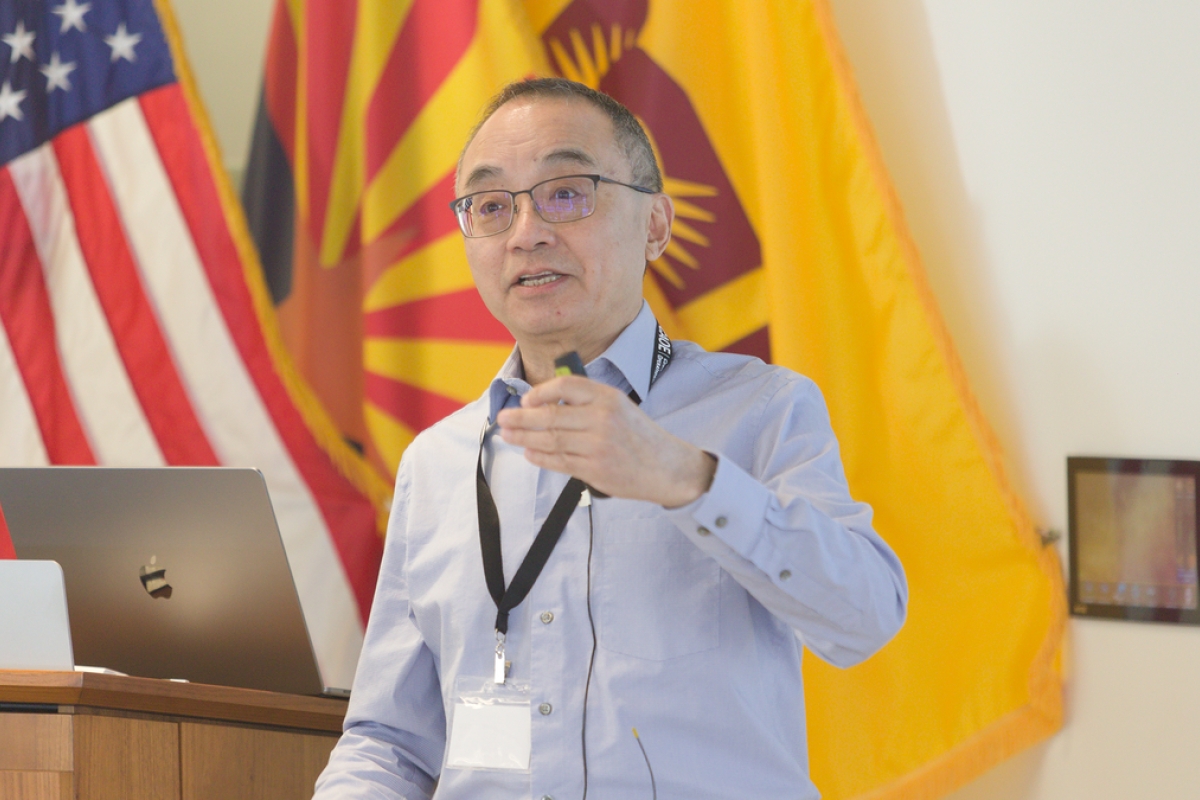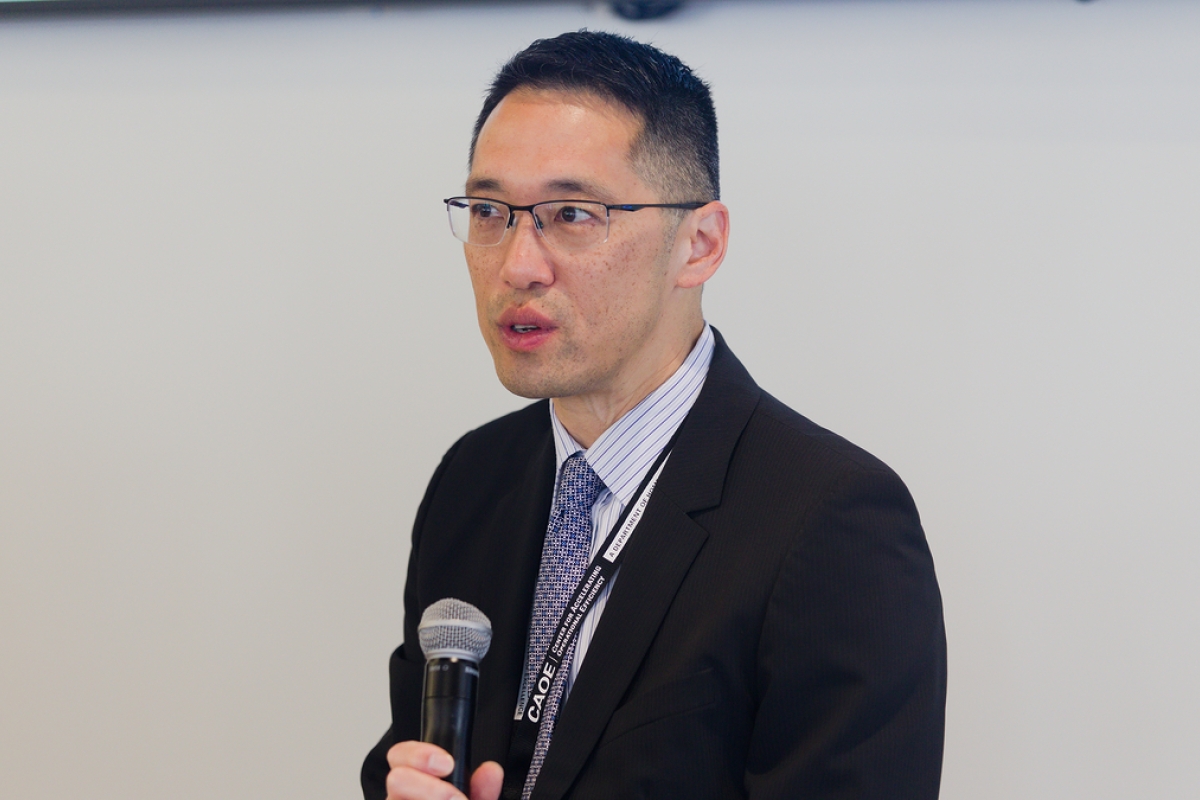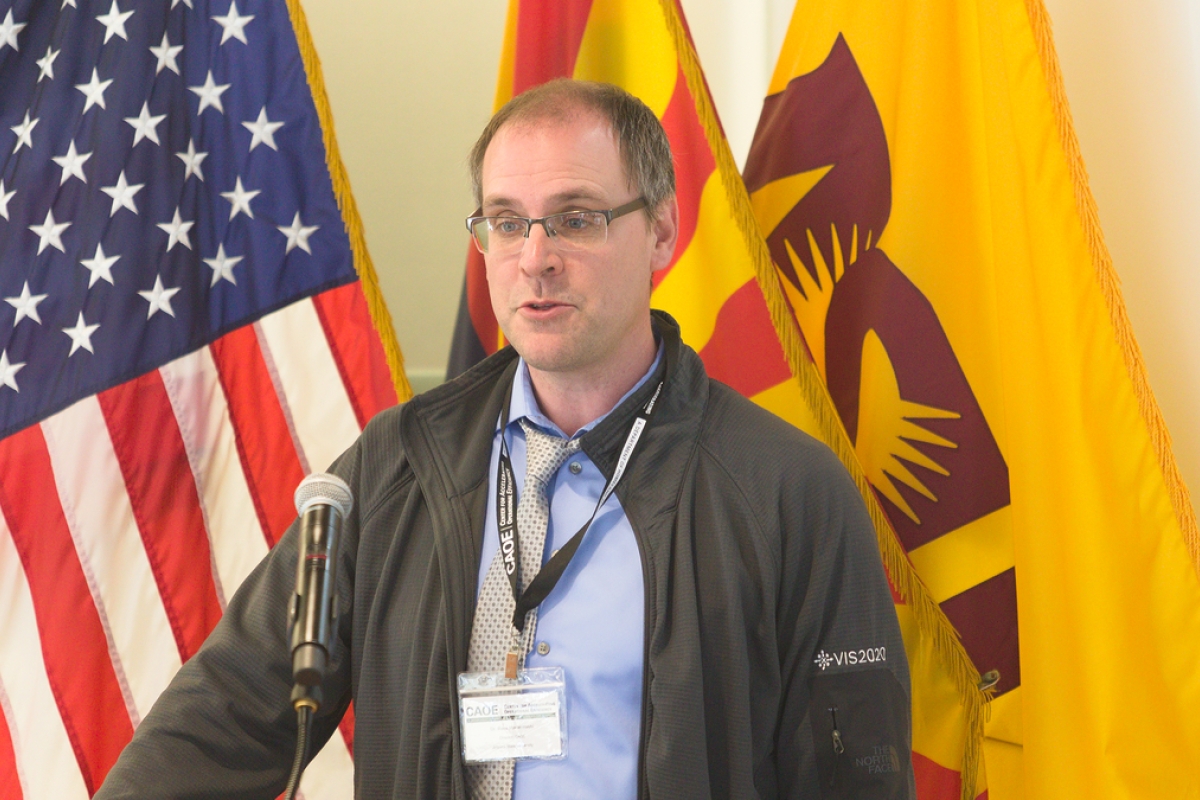
Unlocking the potential of AI for homeland security
“Can we do what we're doing now cheaper, more efficiently, more effectively?”
Adam Cox, director in the Office of Strategy and Policy at the Department of Homeland Security Science and Technology Directorate, initiated a pivotal discussion with a question that set the tone for this year’s Center for Accelerating Operational Efficiency’s annual meeting, spearheaded by Arizona State University.
The Center for Accelerating Operational Efficiency, or CAOE, brought together key figures from the DHS alongside leading artificial intelligence researchers to address the pressing challenges hindering operational effectiveness in a series of panel sessions and presentations.
Together, they underscored the compelling potential of AI-driven solutions in bolstering homeland security operations.
AI-driven solutions for government agencies
In the ever-evolving landscape of national security, the convergence of cutting-edge technology and strategic foresight has become paramount. As part of ASU’s Global Security Initiative, the CAOE’s annual meeting provided a platform for insightful discussions, highlighting both the promises and challenges that lie ahead in harnessing AI to safeguard our nation.
Cox set the tone by underlining the escalating threats to national security and the imperative for innovation to match the evolving mission demands. Then, he delved into various facets of AI integration within DHS, with a keen emphasis on practical applications and the success it has already seen with digital tools.
DHS has been actively exploring ways to enhance current operations, such as the tasks performed by Transportation Security Officers, or TSOs. From TSO tasks to border crossing management to cyber threat detection, he echoed the urgent need for AI-driven solutions to streamline operations and bolster efficiency while underscoring the ethical considerations intertwined with AI deployment. He advocated for transparent and reliable frameworks to uphold integrity in governmental applications.
Chief Data Officer James Sung shed light on governance, trust and workforce readiness for AI adoption in federal agencies. Responsible AI development emerged as a focal point, stressing the importance of ethical considerations and analytic standards in AI deployment. Amid concerns surrounding data privacy and cybersecurity, the dialogue underscored the critical need for a skilled workforce equipped to navigate the intricacies of AI-driven applications. In the DHS's AI policy working group, various questions are being asked to inform the type of work that needs to be done to help address concerns.
“What processes and policies (do) we have to adjust now that a lot of these AI tools are coming about, and what do we have to change? What are the things that we need to do differently, now that some of these tools are available and coming online?”
There are just a few of the questions Sung shared.
Additionally, evacuation planning emerged as a critical area in which AI could play a pivotal role. Despite challenges in funding and support, researchers emphasized the potential of AI and IoT in expediting emergency response times.
As researchers chimed in with questions and comments, the conversation expanded to encompass AI bias and limitations, particularly in medical imaging. Concerns were raised regarding adaptive adversaries in AI training, highlighting the imperative for ongoing research and development to address emergent threats.
In the realm of law enforcement, AI emerges as a double-edged sword, promising operational efficiencies while necessitating careful consideration of societal impacts.
The opening AI panel session wrapped up with a clear overarching message: AI holds immense potential to revolutionize homeland security operations. However, its successful integration hinges upon a multifaceted approach encompassing ethical governance, robust cybersecurity measures and a skilled workforce adept at navigating the complexities of AI-driven technologies.
-

Regents Professor Huan Liu, a professor of computer science and engineering at Arizona State University, shares his presentation on countering misinformation in the era of large language models.
Photo courtesy Hager Sharp
-

James Sung, chief of data science, architecture and engineering at the Department of Homeland Security, discusses how the government is working to create policies and processes aimed at addressing responsible use of AI tools.
Courtesy photo
-

Ross Maciejewski, director of the Global Security Initiative at CAOE, discusses how artificial intelligence is pushing us to think differently when tackling problems.
Courtesy photo
Countering misinformation in the era of language learning models
In one presentation, ASU Regents Professor and senior Global Futures scientist Huan Liu presented the perils posed by disinformation in this digital age — the topic of Liu’s current research in CAOE. Liu detailed the negative impacts on democracy and public health, shedding light on the urgent need for countermeasures.
As the presentation unfolded, Liu delved into the psychological underpinnings of information consumption, emphasizing the importance of understanding human vulnerabilities. Interdisciplinary collaboration emerged as a recurring theme as Liu continued to highlight its pivotal role in advancing research efforts.
Throughout the session, attendees were made aware of a plethora of innovative developments. From linguistic feature analysis to neural models and expert knowledge integration, Liu highlighted a diverse array of tools poised to revolutionize the fight against misinformation.
“But you cannot rely on logic alone. You have to use all that all the tools in your toolbox, basically,” Liu said.
Liu wrapped up his presentation by stressing the need for ethical endeavors, which resonated strongly with the audience. Particularly in an era dominated by tech giants, he also echoes this call to action in his classrooms.
He urges students to seek meaningful work aligned with societal good and their own interests.
Looking ahead, the journey towards harnessing the full potential of AI for homeland security will undoubtedly be fraught with challenges. Yet, as evidenced by the discussions and innovative solutions put forth by CAOE experts, the future holds promise for a safer and more secure nation empowered by the transformative capabilities of AI if it is harnessed for good.
“We still need to work hard to tame disinformation,” Liu added. “We need to collaboratively search for practical methods for new challenges.”
EIN Presswire does not exercise editorial control over third-party content provided, uploaded, published, or distributed by users of EIN Presswire. We are a distributor, not a publisher, of 3rd party content. Such content may contain the views, opinions, statements, offers, and other material of the respective users, suppliers, participants, or authors.

